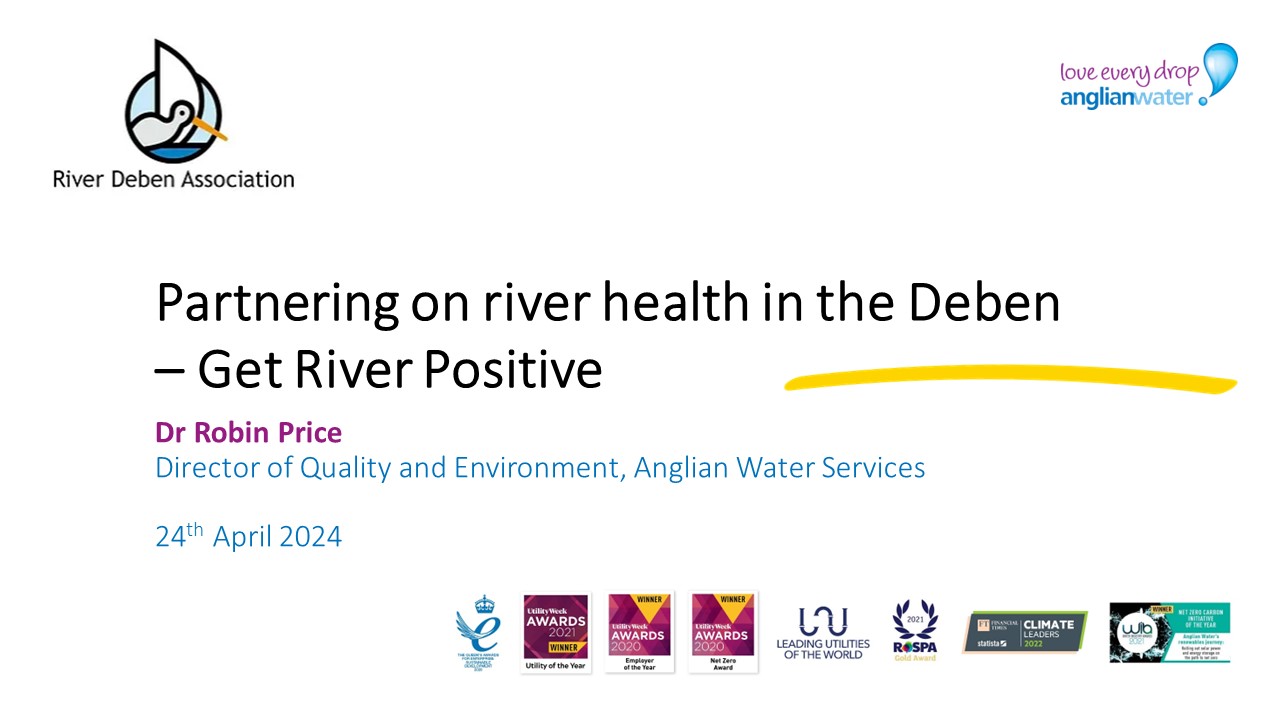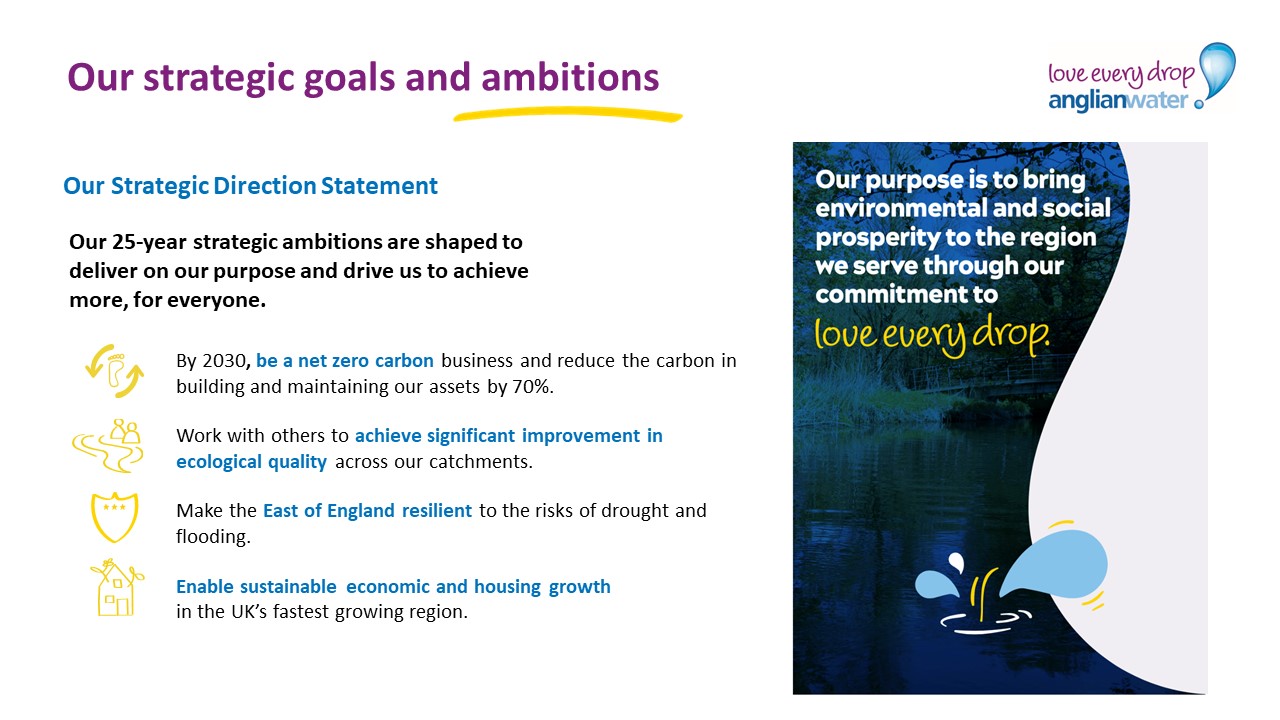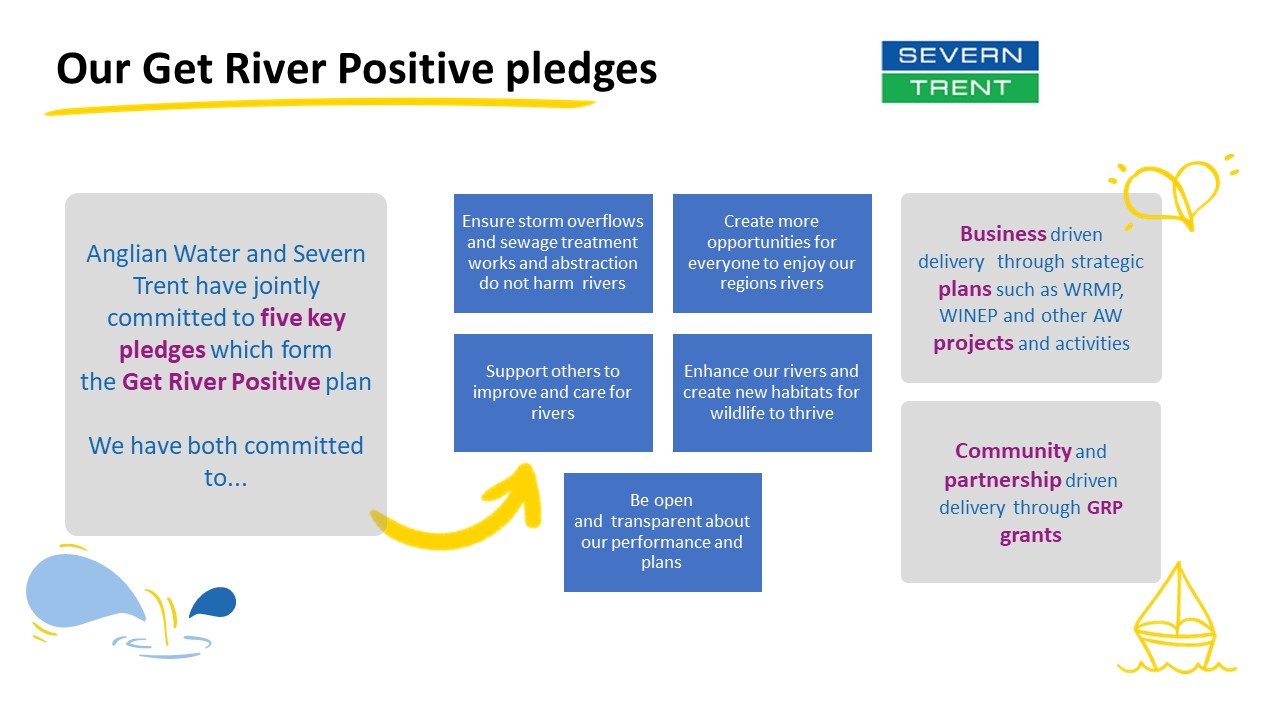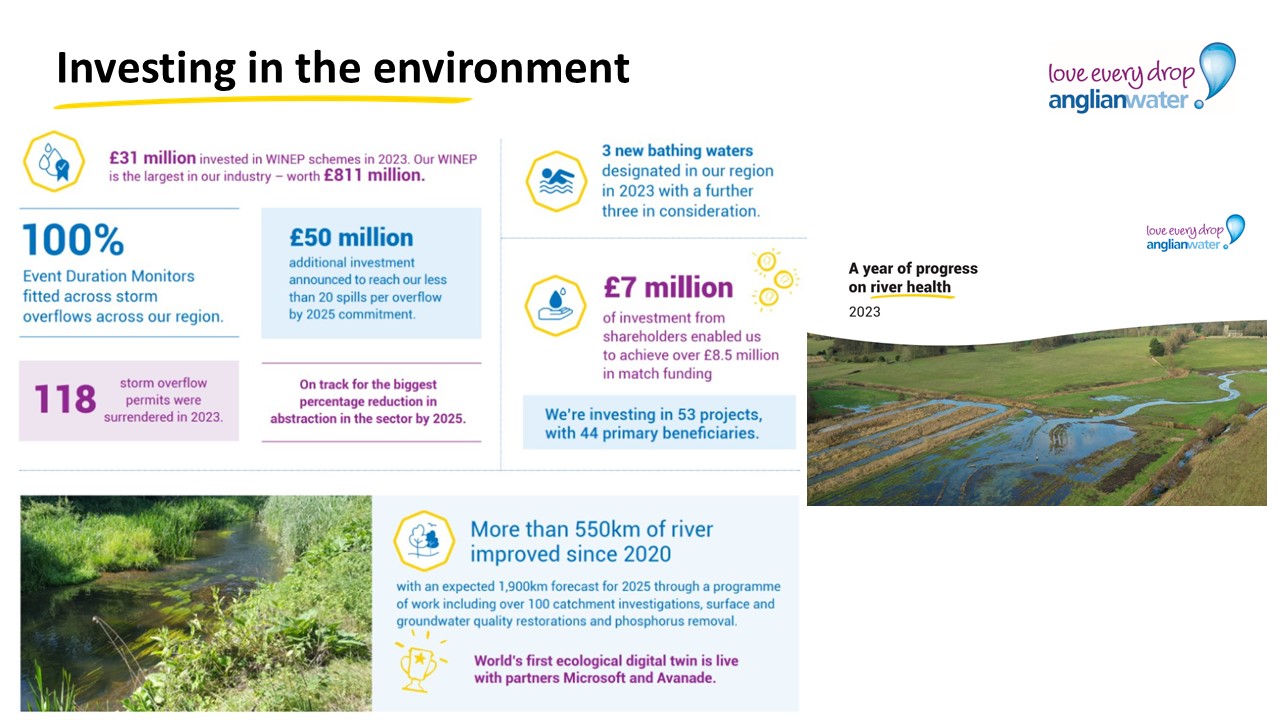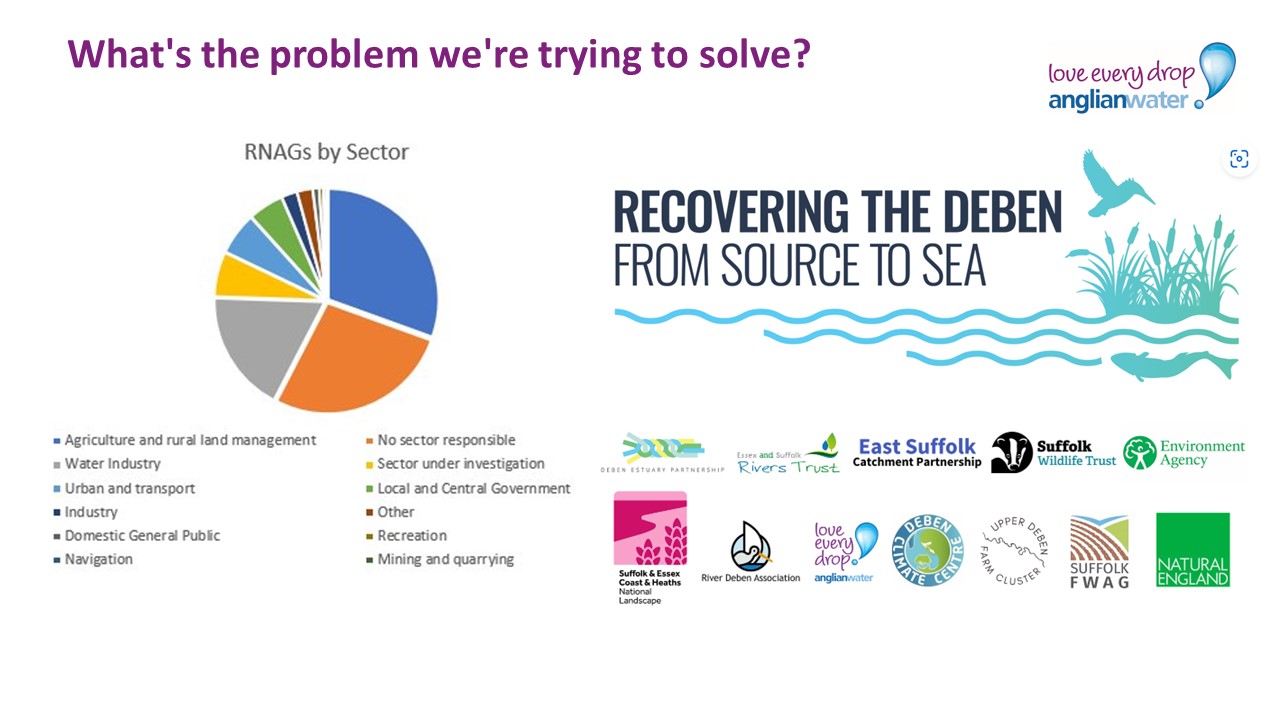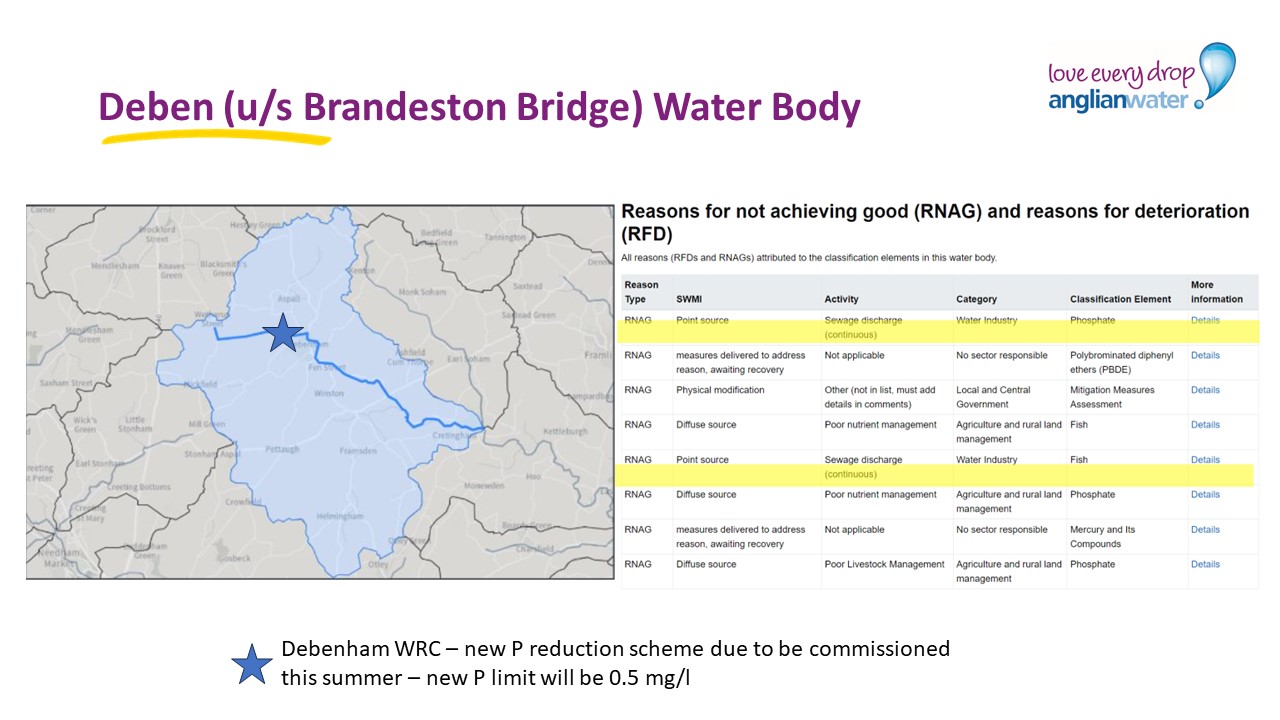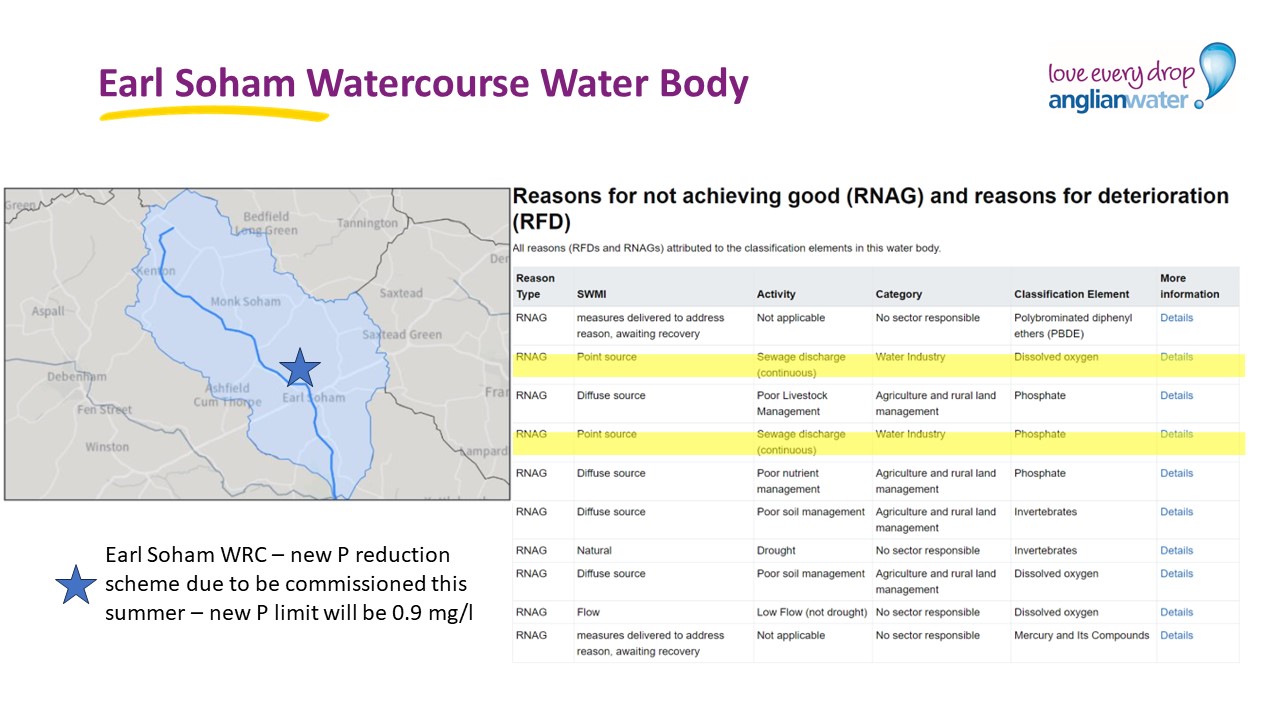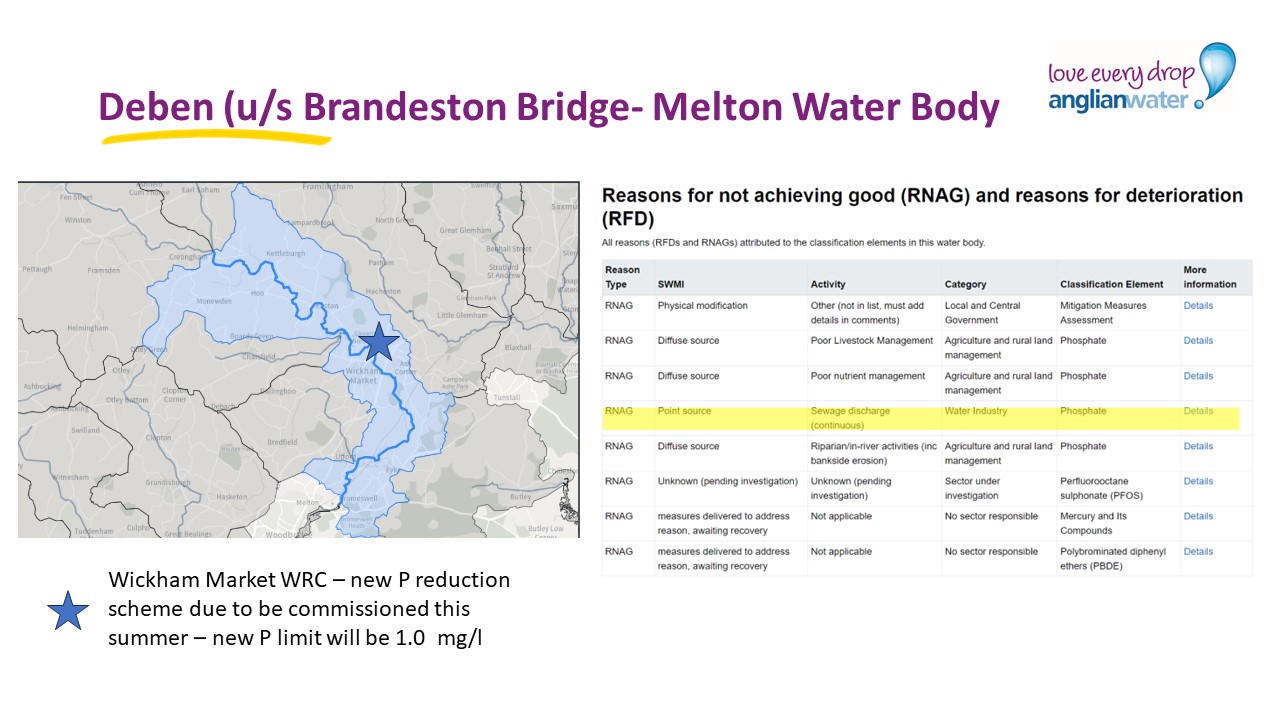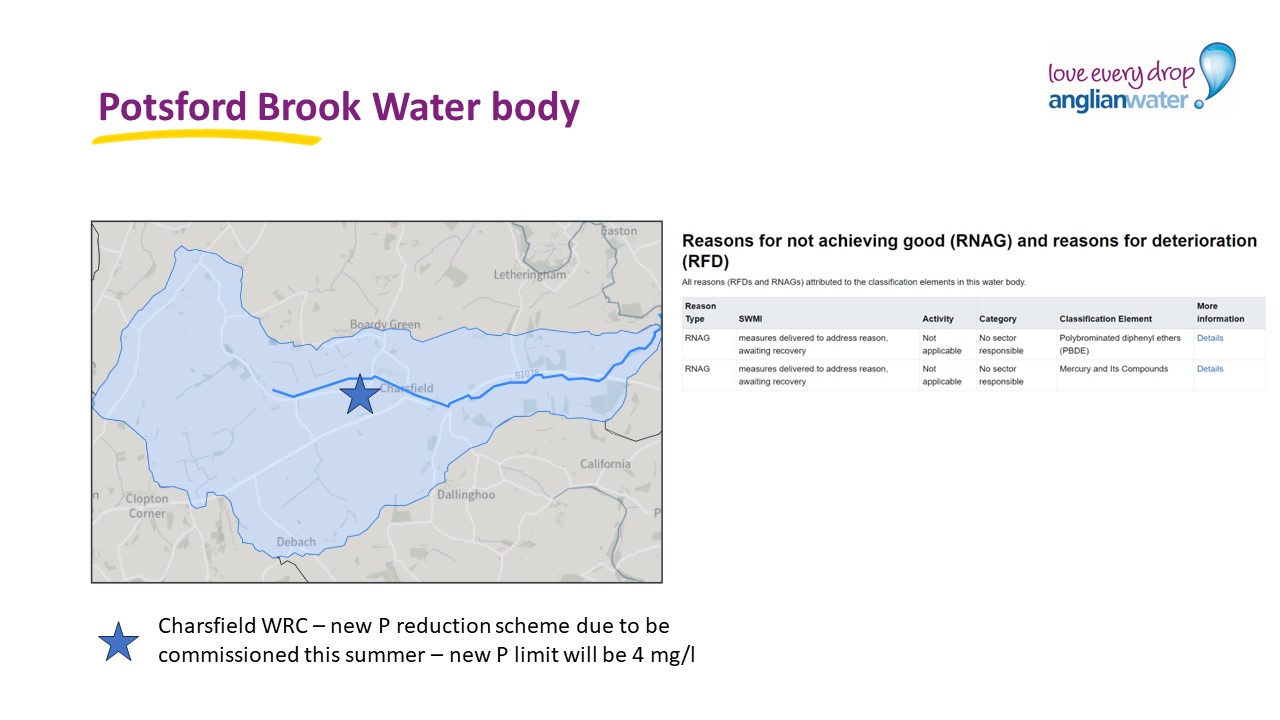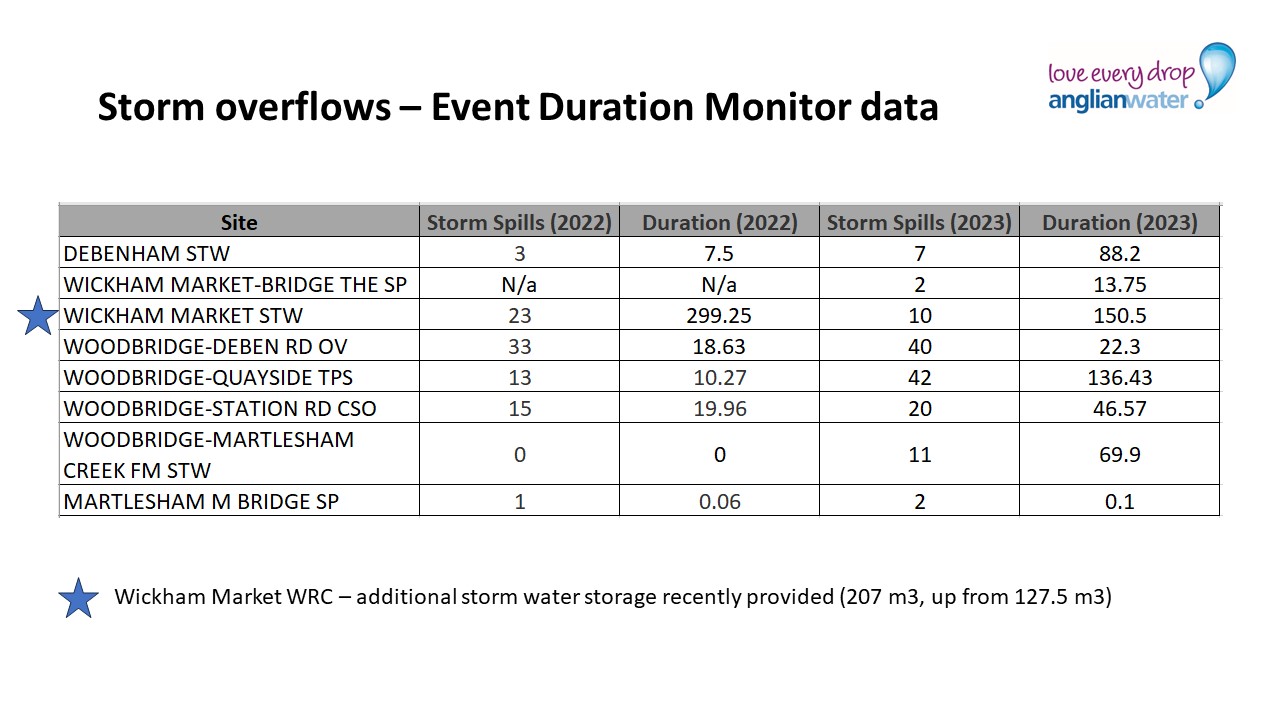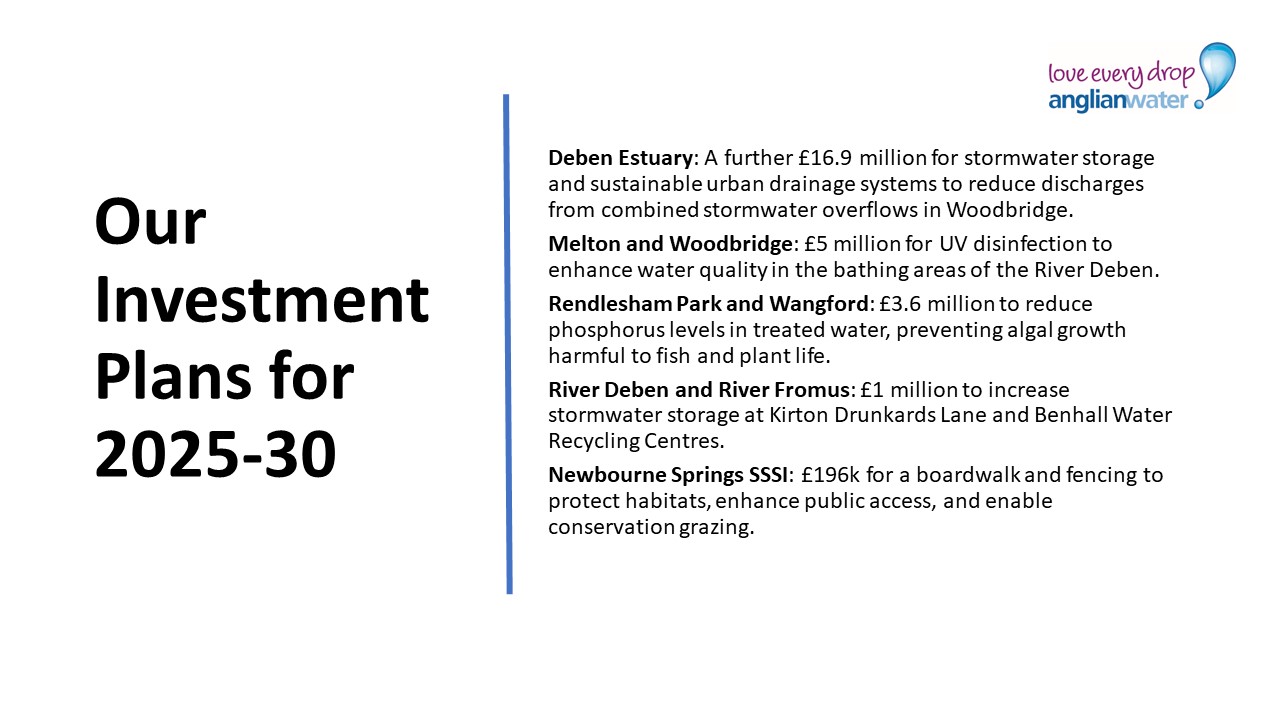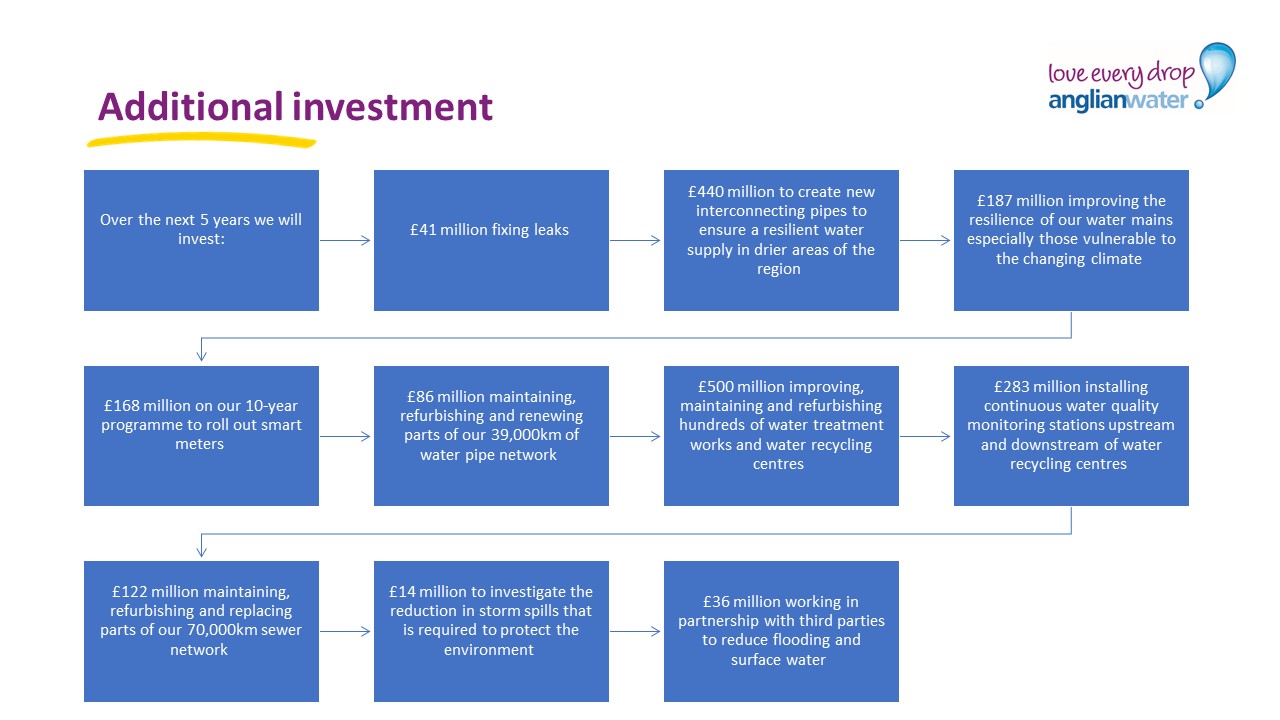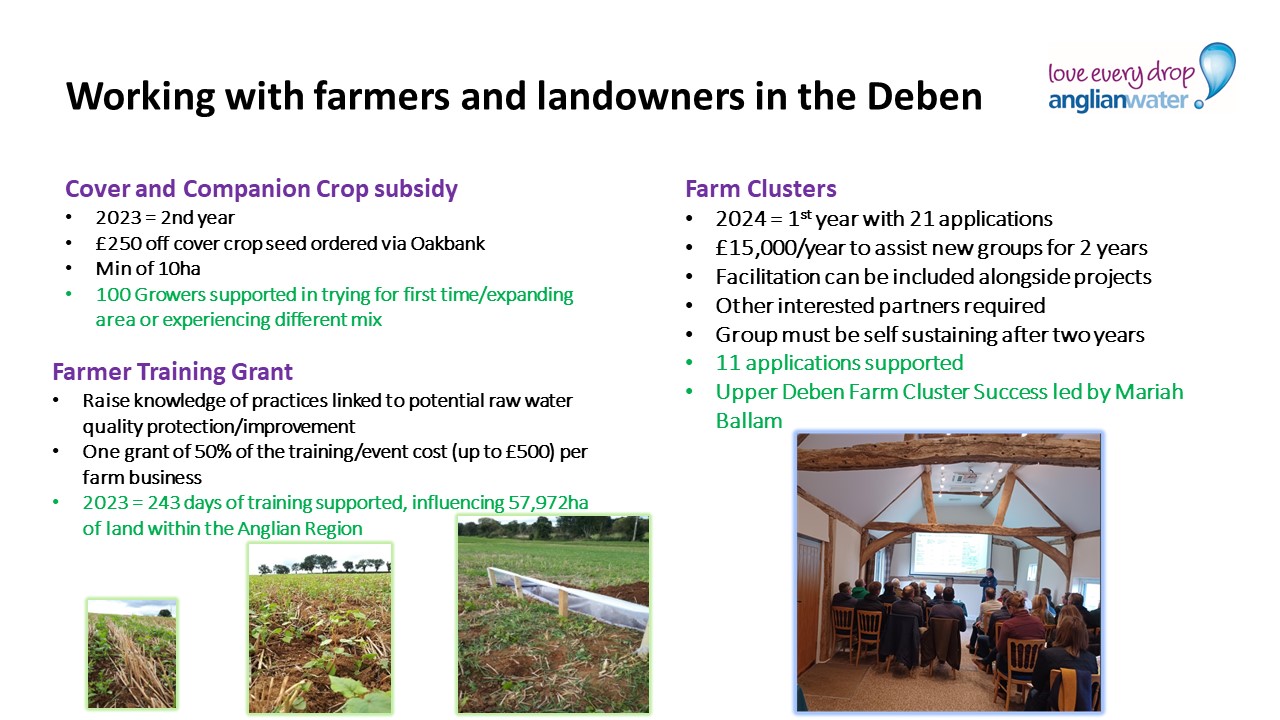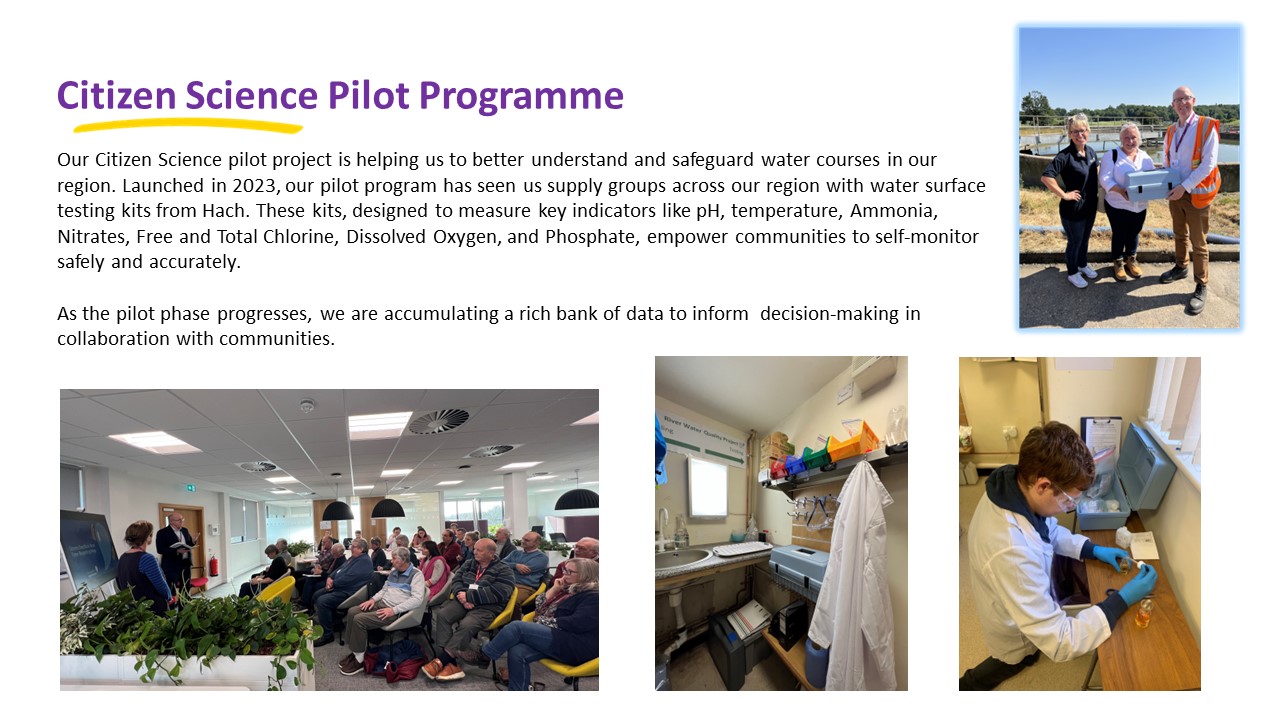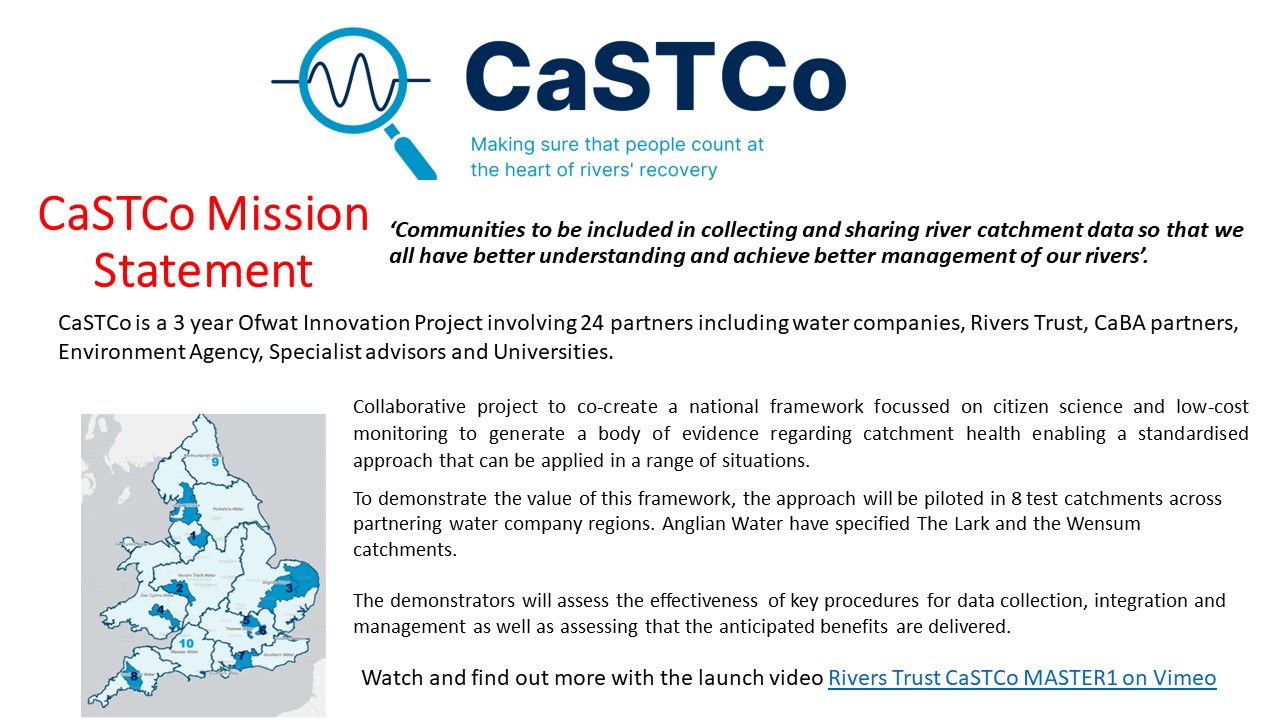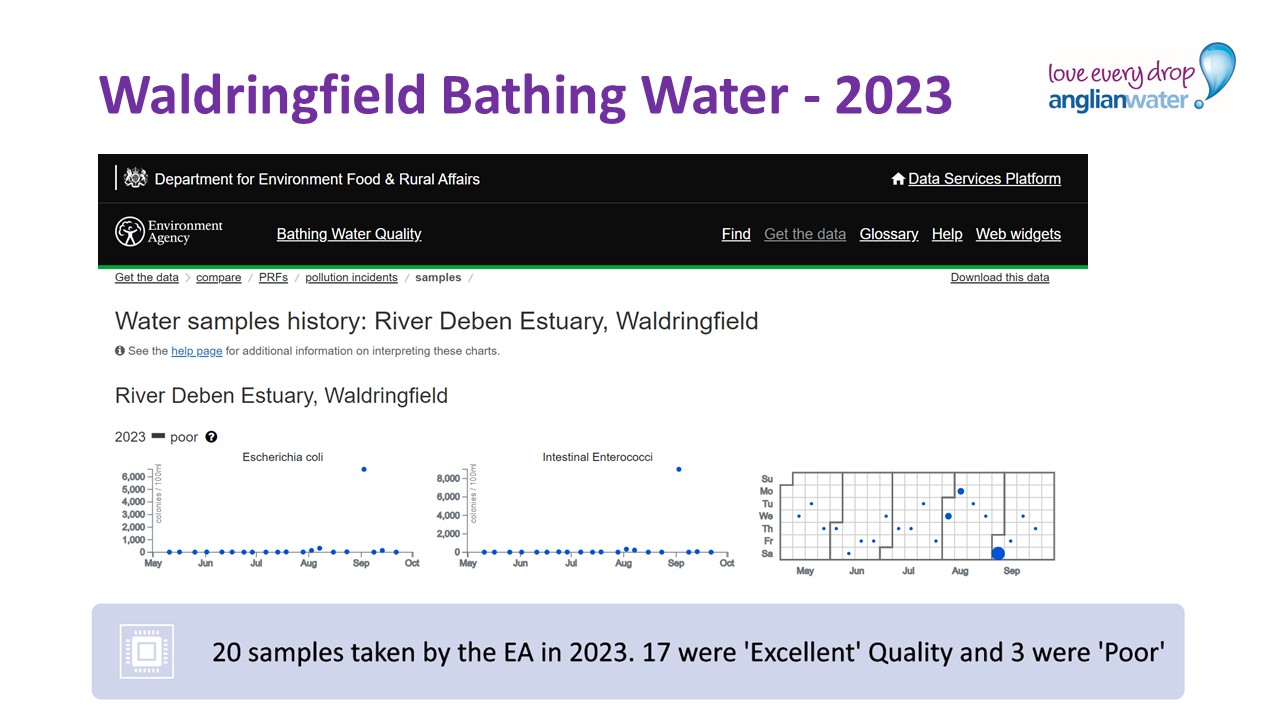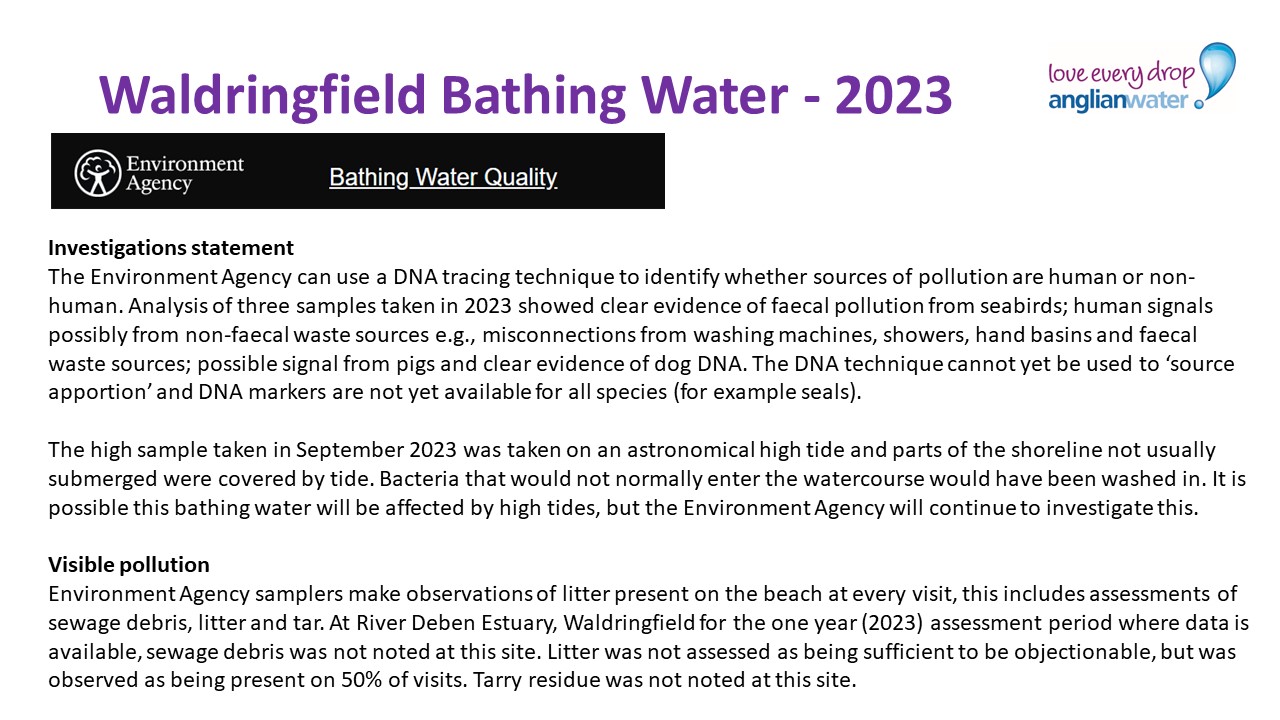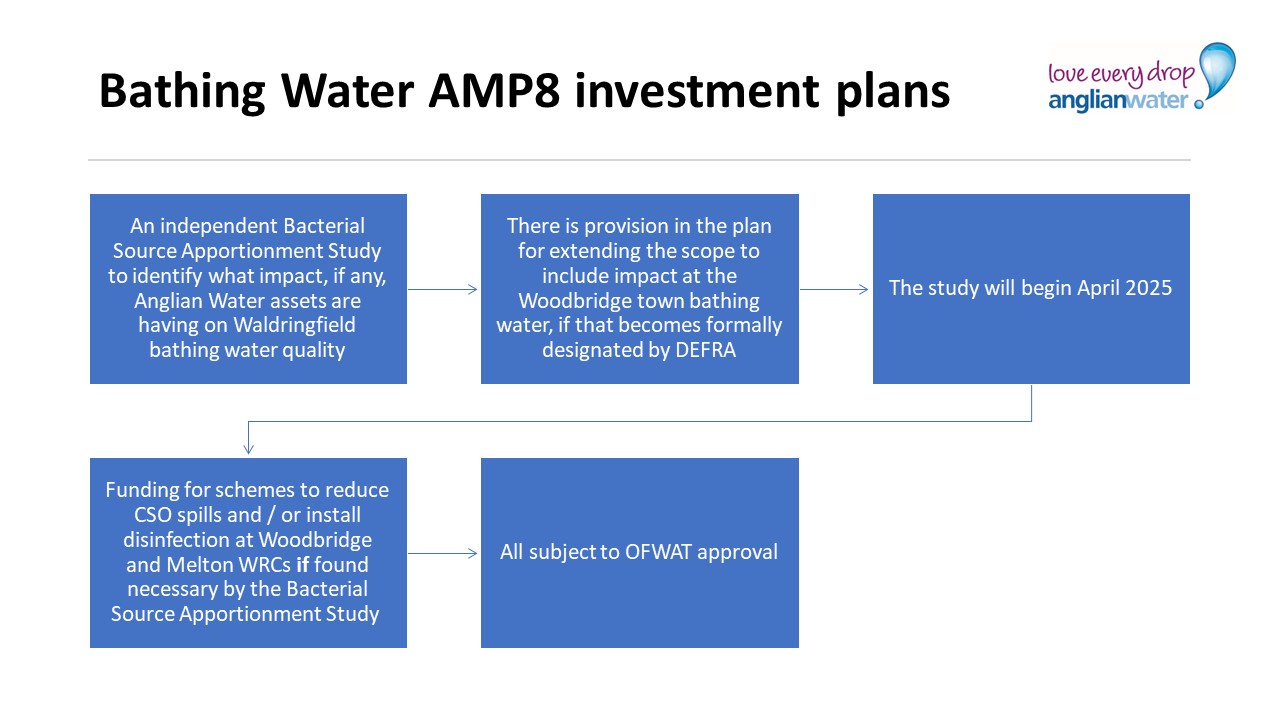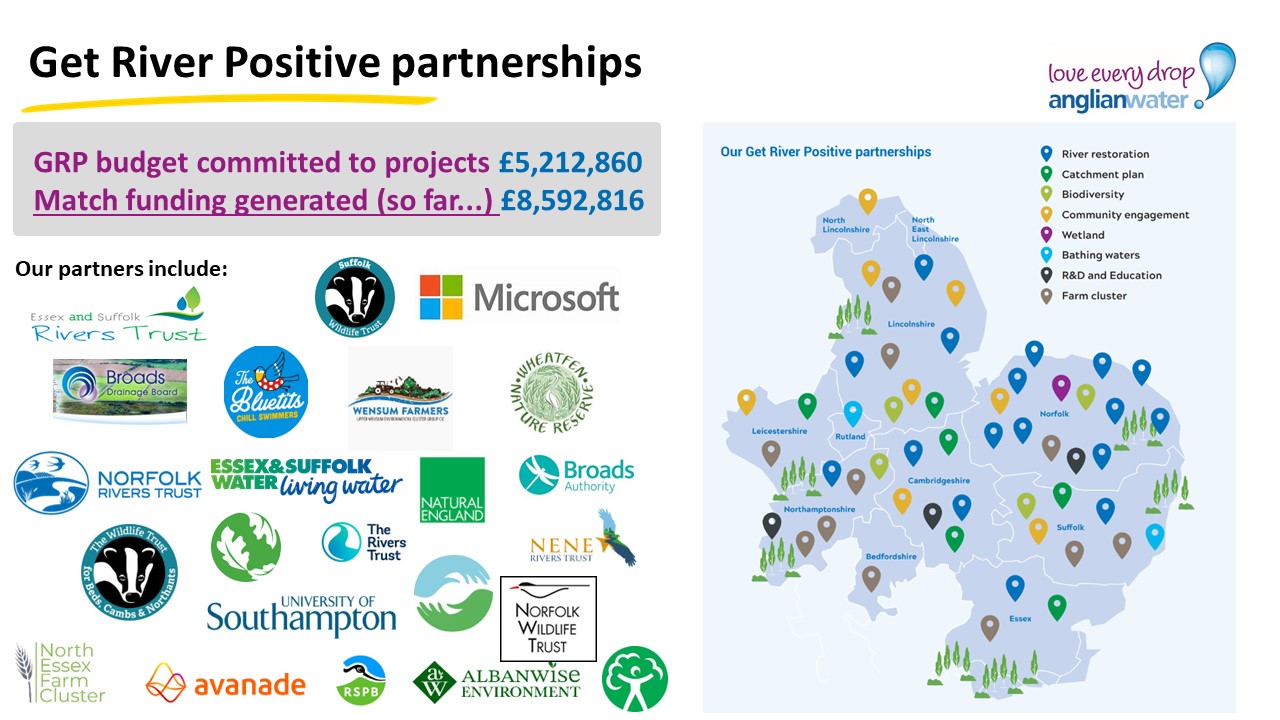By Tristan McConnell
The River Deben Association (RDA) in late April brought together officials from Anglian Water and citizen scientists from the Deben Climate Centre for a frank discussion about river pollution during which facts about the often-poor quality of the Deben’s waters were presented, and solutions offered.

The panel discussion, moderated by outgoing RDA co-chair Jane Haviland, was held in front of a packed audience at Woodbridge Quay Church following the RDA’s annual general meeting on 24 April.
Dr Robin Price, Director of Quality and Environment at Anglian Water Services, was refreshingly upfront about the harm the water company is doing to the environment—primarily through abstraction, or taking too much out, and by putting polluted water back in—and he laid out a series of investments and initiatives underway to reduce the damage.
< Download – Powerpoint Slides >
Openness and collective action
Price’s welcome forthrightness shunned the kind of doublespeak and prevarication common among water industry apologists, and set the tone for a well-informed discussion that underscored the need for shared commitments and joint action to protect a natural resource upon which everyone depends and from which many derive great pleasure.
“River health, river quality, and harm to rivers, is a complex matter,” he said, adding that even if Anglian Water cleaned up its act entirely, the non-tidal Deben would still not achieve good ecological status because of the many other sources of pollution including farming, transport, domestic use, and much else. “This requires collective action,” he said.
Important elements of that collective action are the new Recovering the Deben: From Source to Sea project of which the RDA, Anglian Water, the Deben Climate Centre, and many others are a part, and Anglian and Severn Trent Water’s Get River Positive initiative that seeks to build partnerships with farmers, landowners, conservation organisations, and river users, and to fund improvements.
Data lay at the heart of the evening’s discussion. Price presented information on the sometimes very high levels of phosphates found in water discharged from Anglian Water’s sewage works, saying “We are obsessed with this data… to understand the impact we are having and the investment we need to make.”
Sewage spills
Price described Anglian Water’s new investments to reduce phosphate levels in treated water released from its sewerage works over the coming months and also explained that all the company’s storm overflows—relief valves that allow untreated waste water to be released into rivers and sea when the sewerage system is overloaded, threatening to back up into homes or onto roads—are now fitted with monitors that provide real time information that will be available to the public on a new live map, a great addition to the current annual spills map.
Such transparency and accountability is crucial even when it is uncomfortable. “We had more spills from our storm overflows in 2023 than 2022, and I apologise for that,” said Price, adding that, “Spilling from our sewerage system is not an acceptable way of dealing with excess surface water in our network.”
However, he also emphasised the difficulties of managing the huge volumes of surface water that run into the sewerage system during heavy rains, such as those experienced in Suffolk over the winter that caused widespread flooding. Price said that challenge is exacerbated by housebuilders whose developments fail to make adequate provision for the additional waste water created, and the fact that water companies are not statutory consultees on planning decisions, meaning they have little input yet must deal with the impact.
Coli and dangerous swimming
The damaging effect of pollution on the Deben was made clear by Dr David Findley, a citizen scientist from the Deben Climate Centre, who with a team of more than 30 volunteers has been monitoring water quality at nearly spots along the river over the last 18 months.
He presented findings from the Deben Climate Centre’s recently water quality report that showed very high levels of phosphates that cause eutrophication, algal blooms, and oxygen starvation in the non-tidal river upriver of the Wilford Bridge, and of harmful E. coli bacteria, in samples taken the length of the river, with a clear pattern of spikes close to sewerage works.
In some cases phosphate levels were more than 50 times the 0.1 parts per million recommended by Natural England for healthy rivers, while E. coli levels were more than 10 times the nine colonies per millilitre the Environment Agency considers to be safe for bathing.
Findley’s fellow citizen scientist, Professor Bill Brammar, warned that the different strains of E. coli found in the Deben comes from multiple sources—including but not limited to sewage discharges and inadequate sewage treatment—that many are toxic to humans, and that some are resistant to antibiotics. “I am shocked at how little people understand about the dangers,” said Findley
Bathing water in the tidal Deben
Audience-members and local residents were particularly interested in the impact on the tidal waters downriver of the Wilford Bridge in which many swim, paddleboard, kayak, row, and sail where Waldringfield achieved hard-won bathing water status in April 2023.
Subsequent Environment Agency monitoring across the swimming season between May and September found the water quality to be ‘Excellent’ on 17 occasions, however the remaining three samples were so bad they tipped the average overall rating to a disappointing (and worrying) ‘Poor’ and led to an advisory not to bathe.
One sample stood out. Taken on 2 September during a particularly high tide, the results were catastrophically bad, with the Environment Agency’s subsequent DNA analysis of sources pointing to “clear evidence” of faecal waste from seabirds and dogs, and possibly pigs, as well as “human signals” in the form of domestic waste water and faecal waste.
Price said Anglian Water was committed to investing £5 million over five years on better cleaning of waste water from its Melton and Woodbridge plants using ultraviolent disinfection in order to help improve the quality of the tidal Deben’s bathing waters.
The euphemistic title of the evening’s discussion was, “Are we really up the creek?” The answer, then, was yes, but we have a paddle. Now is the time to use it.
Tristan McConnell
Tristan McConnell is a writer and editor living in Woodbridge.

